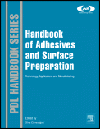Research to Examine Health and Safety Considerations of Nanotechnology

LOUGHBOROUGH, UK - A Loughborough University research team has won research funding from the UK-based Institution of Occupational Safety and Health (IOSH) to examine the health and safety considerations of nanotechnology.
The Loughborough project, led by Royal Academy Professor Alistair Gibb, focuses on nano applications in the built environment such as self-cleaning glass, super-strength bolts and flexible solar panels.
Nanotechnology is revolutionizing all sectors of society. Particles, a thousand times smaller than the thickness of a human hair are now manufactured and incorporated within many products used on a day-to-day basis.
The technology does bring with it some concerns. There is research evidence that raises issues of occupational health risks to those involved in handling the particles, but also, potentially, those involved in working with the nano products throughout their life cycle.
The Loughborough research will identify built environment products that are nano-enabled and establish the types of particles that are used. It will particularly focus on the demolition and recycling of products, as these are the most aggressive stages in a product’s life in the built environment. The team will work with demolition experts from the Institute of Demolition Engineers and the National Federation of Demolition Contractors to determine potential methods for demolition and recycling of such products. Professor Mo Song of Loughborough’s Department of Materials will replicate these activities in the laboratory to establish the bioavailability of the nanoparticles in ways in which they may become hazardous to humans.
Gibb commented, “Governments across the world are advising a prudent approach. However, it is hard to be prudent when you don’t know where the nanoparticles are, which types they are or the likelihood of them becoming bioavailable. Our research will examine these issues. It is as important to establish that a product does not contain harmful particles or that they do not become bioavailable through processes such as demolition as it is to find out that they do. The team wants to help society to take advantage of these ‘wonder materials’, but in a safe and healthy manner.”
Looking for a reprint of this article?
From high-res PDFs to custom plaques, order your copy today!








